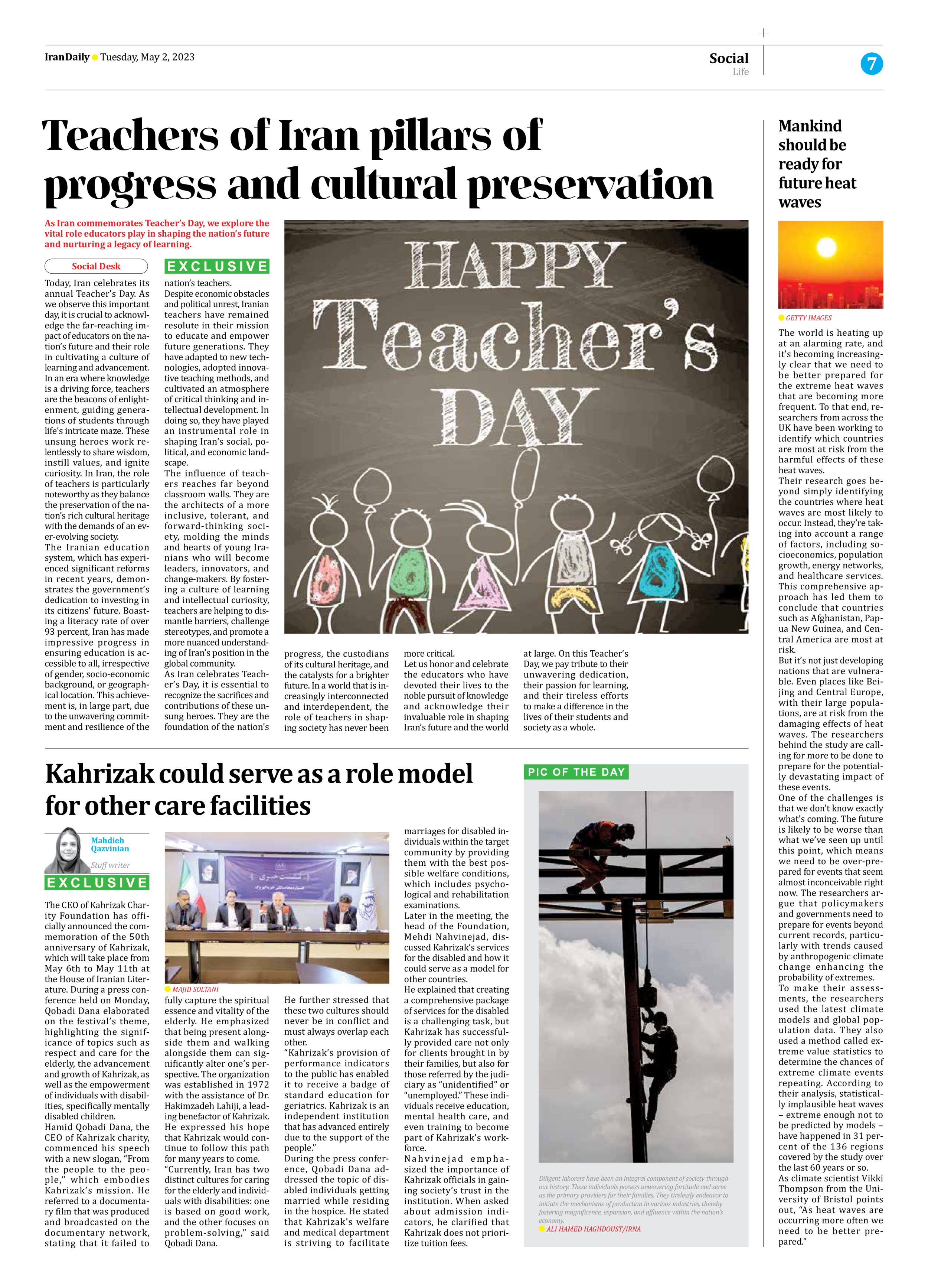
Kahrizak could serve as a role model for other care facilities
Mahdieh Qazvinian
Staff writer
The CEO of Kahrizak Charity Foundation has officially announced the commemoration of the 50th anniversary of Kahrizak, which will take place from May 6th to May 11th at the House of Iranian Literature. During a press conference held on Monday, Qobadi Dana elaborated on the festival’s theme, highlighting the significance of topics such as respect and care for the elderly, the advancement and growth of Kahrizak, as well as the empowerment of individuals with disabilities, specifically mentally disabled children.
Hamid Qobadi Dana, the CEO of Kahrizak charity, commenced his speech with a new slogan, “From the people to the people,” which embodies Kahrizak’s mission. He referred to a documentary film that was produced and broadcasted on the documentary network, stating that it failed to fully capture the spiritual essence and vitality of the elderly. He emphasized that being present alongside them and walking alongside them can significantly alter one’s perspective. The organization was established in 1972 with the assistance of Dr. Hakimzadeh Lahiji, a leading benefactor of Kahrizak. He expressed his hope that Kahrizak would continue to follow this path for many years to come.
“Currently, Iran has two distinct cultures for caring for the elderly and individuals with disabilities: one is based on good work, and the other focuses on problem-solving,” said Qobadi Dana.
He further stressed that these two cultures should never be in conflict and must always overlap each other.
“Kahrizak’s provision of performance indicators to the public has enabled it to receive a badge of standard education for geriatrics. Kahrizak is an independent institution that has advanced entirely due to the support of the people.”
During the press conference, Qobadi Dana addressed the topic of disabled individuals getting married while residing in the hospice. He stated that Kahrizak’s welfare and medical department is striving to facilitate marriages for disabled individuals within the target community by providing them with the best possible welfare conditions, which includes psychological and rehabilitation examinations.
Later in the meeting, the head of the Foundation, Mehdi Nahvinejad, discussed Kahrizak’s services for the disabled and how it could serve as a model for other countries.
He explained that creating a comprehensive package of services for the disabled is a challenging task, but Kahrizak has successfully provided care not only for clients brought in by their families, but also for those referred by the judiciary as “unidentified” or “unemployed.” These individuals receive education, mental health care, and even training to become part of Kahrizak’s workforce.
Nahvinejad emphasized the importance of Kahrizak officials in gaining society’s trust in the institution. When asked about admission indicators, he clarified that Kahrizak does not prioritize tuition fees.







